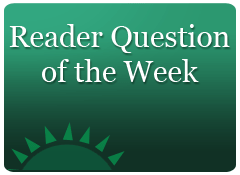A tense Congressional tug-of-war will come to an end in less than a week, when the intensely sought-after seats in the U.S. House of Representatives and Senate are filled after the Nov. 2 midterm elections.

The Republican-Democrat contest is the hottest in years. The voter debate is about which candidates will be the most likely to lift the United States out of a morass marked by near-double-digit unemployment, sluggish economic growth and a terrifying $1.29 trillion budget deficit.
As campaigning time wanes, it's clear that an increasing number of seats are vulnerable.
"Let me tell you something," U.S. Vice President Joe Biden wrote Monday. "I've been around campaigns for a long time and I have never seen a midterm election with this many races in play."
Experts described this campaign season as more volatile than most because of a major possible shift in power.
Republicans are growing more optimistic about snagging the top spot in the House. Experts predict the GOP will nab some seats in industrial states, where the recessionary fallout has turned voters against Democratic incumbents.
"The political climate is dominated by the economy," Nathan Gonzales, who tracks state races for the Rothenberg Political Report, told Bloomberg. "That's where Democrats are getting hurt."
Republicans are successfully attracting voters by criticizing the U.S. economic malaise, including:
- An economic growth rate that's stumbled from 5% at the end of last year to a wheezing 1.7% in the second quarter.
- U.S. President Barack Obama's continued spending, such as a $787 billion economic stimulus package and $940 billion in healthcare reform.
- And a 9.6% unemployment rate that won't budge.
Democrats continue to support stimulus measures and spending to encourage economic growth. But critics fire back by questioning the results - especially when the subject of "QE2" - a second round of quantitative easing - is brought up. Voters have also criticized financial bailouts that will end up hitting already struggling taxpayers.
Other concerns left for after the elections include the Bush tax cuts, a stagnant housing market and ongoing energy issues like offshore drilling.
One thing is clear: Whomever voters elect could be the controlling voice that gets to stop the political deadlock and move the country forward. While some experts have said that a divided government could force negotiations and cooperation, that has so far not been the case.
"We need to have a more thoughtful, nuanced discussion about what we're going to do and what exactly does this mean," David Cote, a member of President Obama's debt-reduction commission, told The New York Times. "And I don't see that happening. It seems like everybody wants to just argue."
This brings us to next week's Money Morning "Question of the Week": What top three issues do you want to see addressed after the mid-term elections? Are you confident these issues can and will be fixed? Do you think the vote will bring about a major power shift in Washington? Do you see positive change on the U.S. political horizon, or are you skeptical over what the future holds?
Send your thoughts, questions and concerns to [email protected].
[Editor's Note: Is there a topic you want to see covered as a "Question of the Week" feature? Then let us know by e-mailing Money Morning at [email protected]. Make sure to reference "question of the week suggestion" in the subject line.
We reserve the right to edit responses for length, grammar and clarity.
Thanks to everyone who took the time to participate - via e-mail or by posting their comments directly on the Money Morning Web site.]
News and Related Story Links:
- Money Morning News Archive:
Midterm Elections Stories - The Wall Street Journal:
Story of the Midterms, Told Through 5 Races - Bloomberg:
Voters 'Ripe for Change' Signal Republicans to Add 6 Governors - The New York Times:
Deficit Divisions Likely to Grow After Elections - Money Morning News Archive:
Question of the Week Feature


